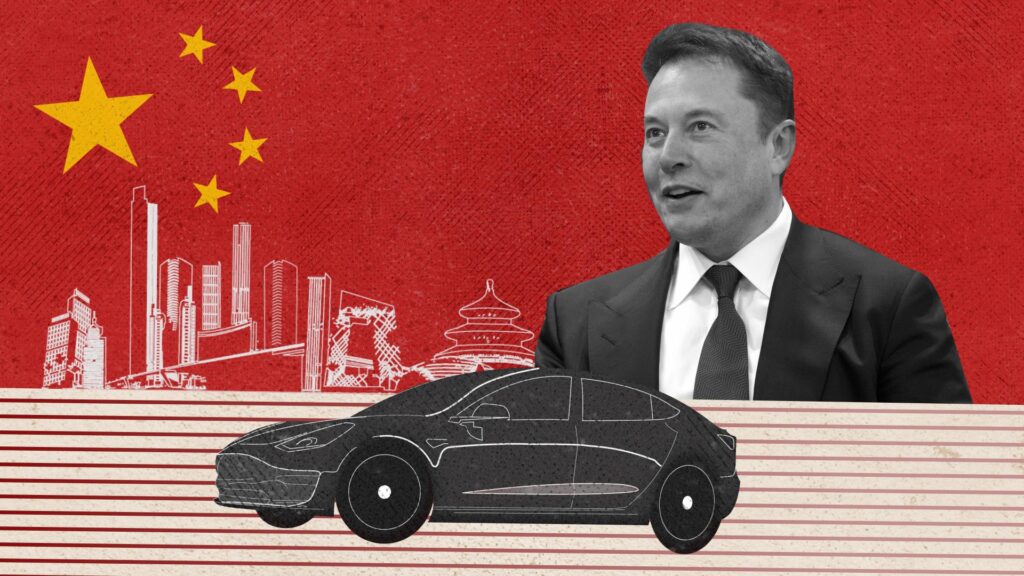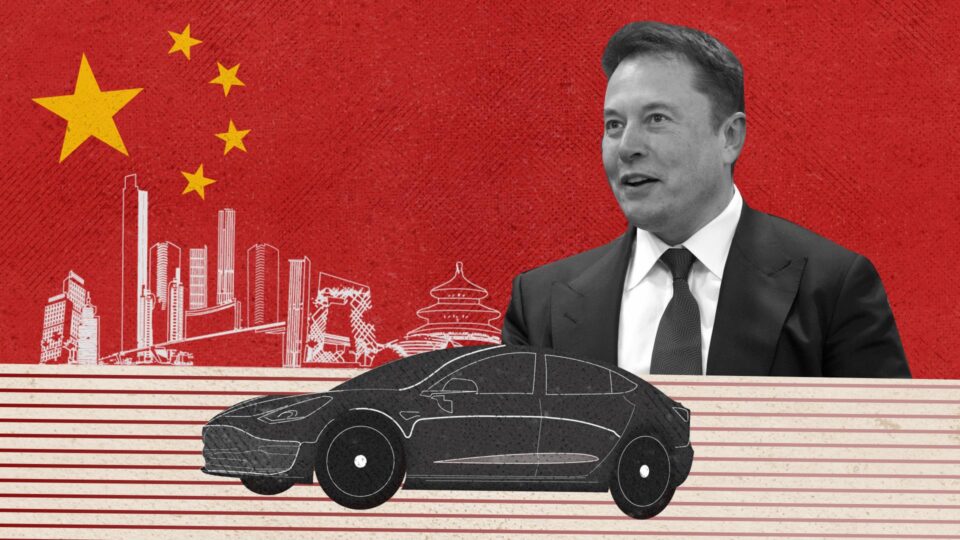Although Tesla is based in California, China seems to be where it’s found its biggest supporters. In 2019, the company saw its China sales increase by 161% from the previous year. That’s 40,000 newly registered Teslas. Despite the recent pandemic that saw Chinese car sales decline by 42% for the first quarter of 2020, Tesla bounced back immediately with record-setting months in March and April.

But Tesla’s successful run in China hasn’t come without plenty of help. The country’s government has done everything it can to make Tesla flourish, from tax exemptions on sales, to billions of dollars in funding for the construction of its Shanghai factory.
China and Tesla have formed an uncommon and symbiotic relationship. But why? First, we have to go back to how Tesla got there.
Since 2015, China has been the world’s largest electric car market. As Tesla saw its China sales triple to $1 billion for 2016 then reach $2 billion for 2017, it became clear the EV builder had an audience there. However, as other automakers had already found, the US trade war with China was a major obstacle to selling cars there. With heavy taxes being slapped on Teslas imported to China, an $80,000 Model S from the US was selling for around $140,000 in China. The only way to sell cars to Chinese consumers on a larger scale would be to build them there.
But the cost of producing cars in China was not cheap. Government policy forced foreign automakers to work with a joint venture partner in China and share half the profits. However, in 2018 the country began rolling back these restrictions. Elon Musk was quick to take advantage, and that July signed an agreement to build a wholly owned factory in Shanghai. With $1.6 billion in funding from Chinese banks and record-fast approvals by the government, Musk constructed Tesla’s third Gigafactory. By August 2019 the plant was already building vehicles.
The factory is currently making 3,000 cars a week, or around 150,000 a year. By the end of 2021, when the factory is fully operational, Musk plans for it to be churning out 500,000 cars annually. And with China now exempting Model 3s from a 10% sales tax, along with the $3,560 government subsidy on each car, there’s no telling how many the EV giant stands to sell.
So why has Tesla received such a warm welcome from China? To start, there’s the incredible amount of money China stands to make off the factory alone. The Shanghai facility was financed almost entirely through state-controlled banks who can expect a pretty big return on their investment. Plus, Tesla purchased a 50-year lease of the land, which is money that goes directly to the Chinese government. Additionally, 30% of the factory’s parts are purchased locally. Musk says by the end of 2020 he plans for that to reach 100%.
On a wider scale though, Tesla could be the boost China’s declining car market needs. In 2019 total car sales in China fell by 8%, after falling 3% in 2018. More recently, factory closures due to COVID-19 had disastrous effects on this year’s first quarter sales. However, the industry is steadily recovering, largely due to EV sales, with Tesla accounting for a whopping 30%. With sales already improving in both March and April, the automaker could play a major role in reviving the country’s auto sector.
Despite adding competition to China’s enormous EV market, Tesla could also have benefits for the country’s domestic brands. Chinese companies like NIO and Xpeng that were once dubbed “Tesla-killers” are now struggling. While they are some of the most recognized electric car brands in China, they are virtually unheard of in the West. A well-known international brand like Tesla could help introduce the country’s EV industry to global market competition, giving them exposure to buyers in America and Europe, and potentially improving these companies’ sales.
There’s also the environmental aspect. China, with a population of 1.4 billion and some of the world’s most heavily polluted cities, is doing everything it can to prioritize EVs. For Chinese consumers, electric cars are cheaper to register, and they’re significantly more convenient. As of 2016, at least a dozen major Chinese cities have mandated “even-odd” policies. Under these conditions, traditional vehicles with license plates ending in an odd digit are allowed on roads on odd dates, and those with an even digit on even dates. EV drivers can take their cars out on any day.
Chinese car buyers have collectively taken EVs more serious than similarly sized countries, as battery-powered vehicles make up 4.7% of all cars sold in China, compared to just 1.7% in the US. By 2025, China aims for EVs to account for 25% of all cars sold, with Tesla potentially leading that charge.
Yet China welcoming Tesla with open arms is a risky move. The country spent years and billions investing in domestic EV manufacturers and developing their own domestic market. Now they’ve shifted focus, investing in a foreign company on their soil. In the end, Tesla could provide huge benefits for China and open up the country’s market on a global scale. But, we could just as easily see a less happy ending with Tesla dominating China’s EV sector to the point of cannibalizing it. Vice versa, Tesla could be overcome by the amount of local competition. Both Musk and China are taking a massive gamble, and only time will tell how this relationship ends up.
Read next


